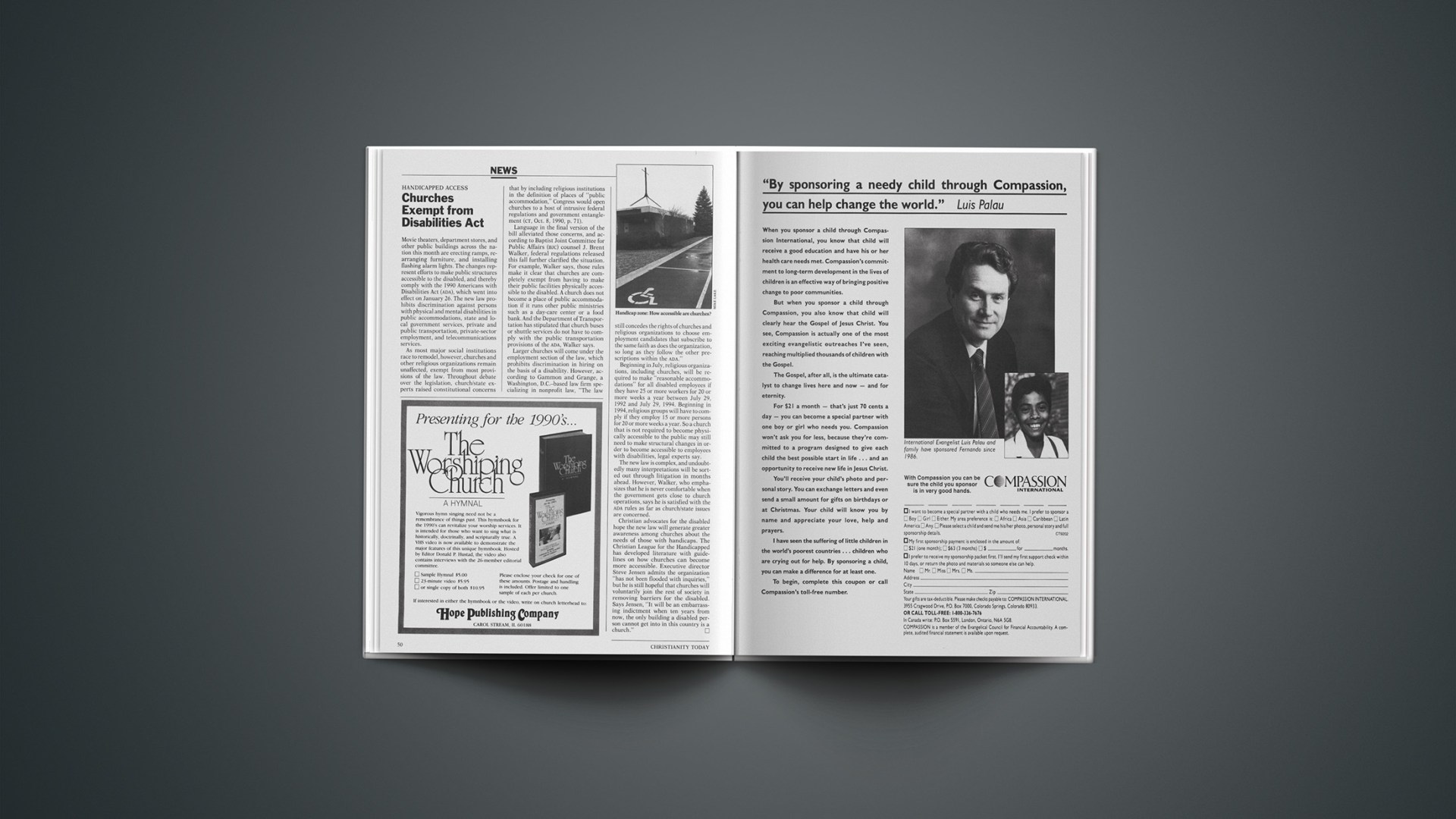Movie theaters, department stores, and other public buildings across the nation this month are erecting ramps, rearranging furniture, and installing flashing alarm lights. The changes represent efforts to make public structures accessible to the disabled, and thereby comply with the 1990 Americans with Disabilities Act (ADA), which went into effect on January 26. The new law prohibits discrimination against persons with physical and mental disabilities in public accommodations, state and local government services, private and public transportation, private-sector employment, and telecommunications services.
As most major social institutions race to remodel, however, churches and other religious organizations remain unaffected, exempt from most provisions of the law. Throughout debate over the legislation, church/state experts raised constitutional concerns that by including religious institutions in the definition of places of “public accommodation,” Congress would open churches to a host of intrusive federal regulations and government entanglement (CT, Oct. 8, 1990, p. 71).
Language in the final version of the bill alleviated those concerns, and according to Baptist Joint Committee for Public Affairs (BJC) counsel J. Brent Walker, federal regulations released this fall further clarified the situation. For example, Walker says, those rules make it clear that churches are completely exempt from having to make their public facilities physically accessible to the disabled. A church does not become a place of public accommodation if it runs other public ministries such as a day-care center or a food bank. And the Department of Transportation has stipulated that church buses or shuttle services do not have to comply with the public transportation provisions of the ADA, Walker says.
Larger churches will come under the employment section of the law, which prohibits discrimination in hiring on the basis of a disability. However, according to Gammon and Grange, a Washington, D.C.—based law firm specializing in nonprofit law, “The law still concedes the rights of churches and religious organizations to choose employment candidates that subscribe to the same faith as does the organization, so long as they follow the other prescriptions within the ADA.”
Beginning in July, religious organizations, including churches, will be required to make “reasonable accommodations” for all disabled employees if they have 25 or more workers for 20 or more weeks a year between July 29, 1992 and July 29, 1994. Beginning in 1994, religious groups will have to comply if they employ 15 or more persons for 20 or more weeks a year. So a church that is not required to become physically accessible to the public may still need to make structural changes in order to become accessible to employees with disabilities, legal experts say.
The new law is complex, and undoubtedly many interpretations will be sorted out through litigation in months ahead. However, Walker, who emphasizes that he is never comfortable when the government gets close to church operations, says he is satisfied with the ADA rules as far as church/state issues are concerned.
Christian advocates for the disabled hope the new law will generate greater awareness among churches about the needs of those with handicaps. The Christian League for the Handicapped has developed literature with guidelines on how churches can become more accessible. Executive director Steve Jensen admits the organization “has not been flooded with inquiries,” but he is still hopeful that churches will voluntarily join the rest of society in removing barriers for the disabled. Says Jensen, “It will be an embarrassing indictment when ten years from now, the only building a disabled person cannot get into in this country is a church.”










